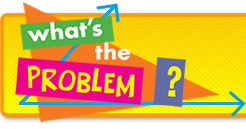Counting Principle - A method for finding the number of ways two or more events can occur. Simply multiply the number of possible ways the first event can occur times the number of ways the second event could then occur. If there are more than two events, continue to multiply the number of ways each event can occur until all have been accounted for.
Divisible - A number is divisible by another if, upon division, the remainder is zero.
Prime Number - Any whole number greater than 1 which has exactly two factors, 1 and itself.
Composite Number - Any whole number greater than 1 which has more than two factors.
Natural Numbers - The set of numbers represented by {1, 2, 3 ... }
Whole Numbers - The set of numbers represented by {0, 1, 2, 3 ...}
Rational Numbers - Any number that can be represented as a fraction a/b, where a and b are integers.
Integers - The set of numbers represented by {... -3, -2, -1, 0, 1, 2, 3 ...}
Combination - A selection of a group of items or events from a set without regard to order. (Order dosen't matter.)
Permutation - A selection of a group of items or events from a set with regard to order. (Order is important.)
Factorial - Products of all the positive integers equal to and smaller than a given number. They are indicated by an exclamation mark-- "four factorial" is written 4! and means 4 x 3 x 2 x 1 = 24 and 6! = 6 x 5 x 4 x 3 x 2 x 1 = 720.





